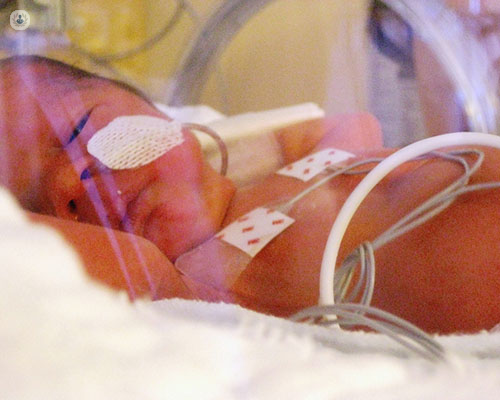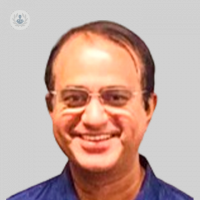An overview of neonatal and thoracic surgery
Written in association with:Neonatal and thoracic surgeries are critical fields within paediatric surgery, focusing on delicate procedures for the most vulnerable patients. In this article below, revered consultant paediatric and neonatal surgeon, Professor Ashok Ram, explains what the respective surgical fields entail and what they are used to treat.

What is neonatal surgery?
Neonatal surgery is a highly specialised field due to the unique challenges posed by newborn patients. These challenges include the small size and fragility of neonates, their unique physiology, and the presence of congenital conditions that may require immediate intervention.
What are the most common types of neonatal surgery?
Common neonatal surgical procedures include correction of congenital diaphragmatic hernia, intestinal atresia, and repair of congenital heart defects. The success of these surgeries often hinges on the early diagnosis and timely intervention, which can significantly improve outcomes and quality of life for these young patients.
What is thoracic surgery, and when is it required?
Thoracic surgery in neonates and children requires precision and expertise to manage conditions such as congenital heart defects, lung malformations, and chest wall deformities. Surgeons in this field employ advanced techniques such as minimally invasive surgery, which involves smaller incisions and results in quicker recovery times and reduced pain for the patient.
Common procedures include the repair of tracheoesophageal fistula, lobectomy for congenital lung lesions, and correction of pectus excavatum. Innovations in surgical techniques and postoperative care have significantly improved survival rates and long-term health outcomes for paediatric patients undergoing thoracic surgery.
One of the critical aspects of neonatal and thoracic surgery is the multidisciplinary approach. Surgeons work closely with neonatologists, paediatric anesthesiologists, cardiologists, and other specialists to provide comprehensive care. This team approach ensures that all aspects of the child's health are considered, from preoperative planning to postoperative care and long-term follow-up.
Advances in neonatal and thoracic surgery have been driven by improvements in prenatal diagnostics, surgical techniques, and postoperative care. Prenatal imaging techniques, such as foetal MRI and ultrasound, allow for early detection of anomalies, enabling surgical teams to plan interventions even before birth. Moreover, the development of specialised surgical tools and techniques tailored for paediatric patients has enhanced the precision and effectiveness of these procedures.


